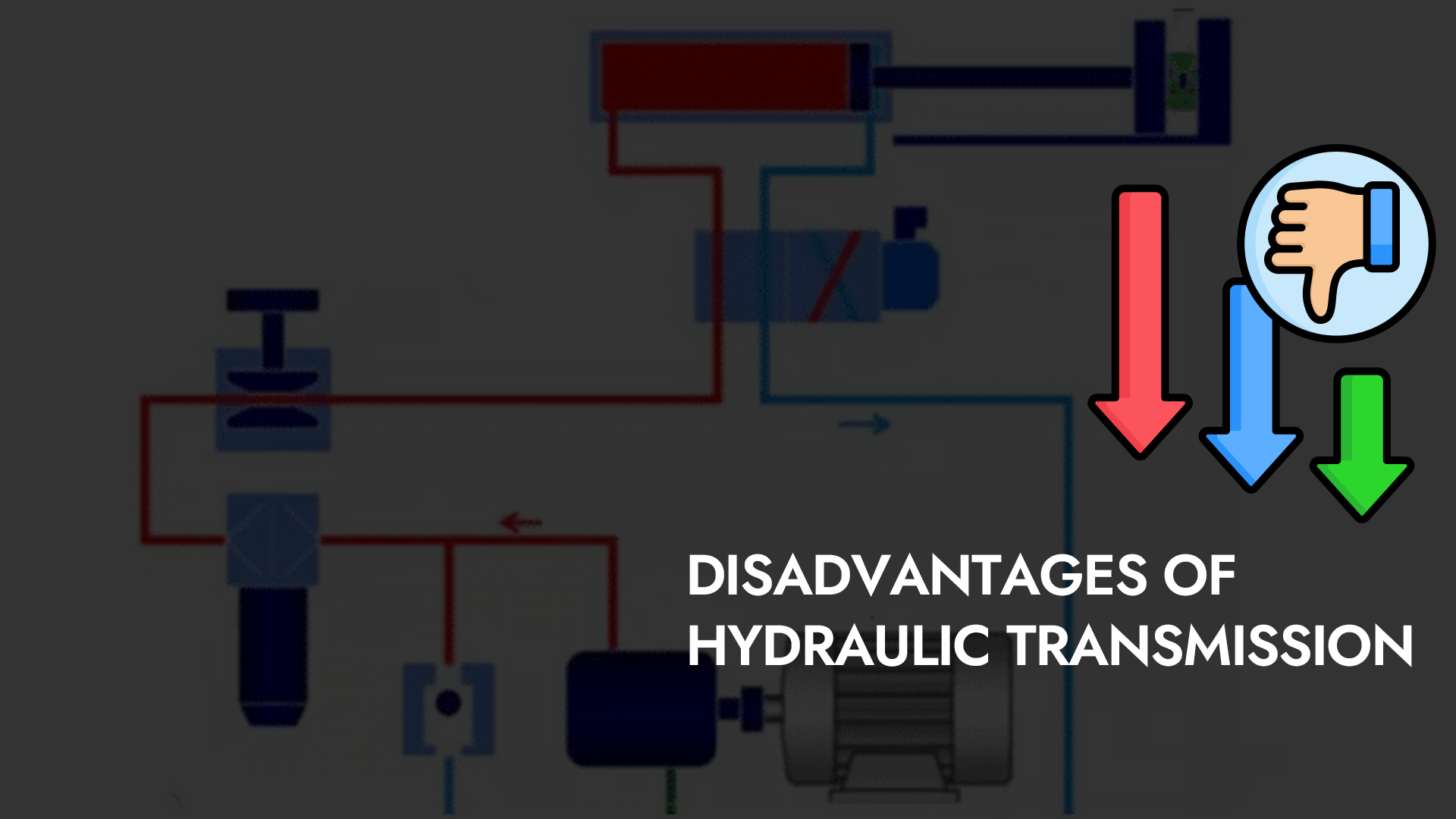8 Disadvantages of Hydraulic Transmission

As a writer specializing in industrial technology, I’ve often encountered the widespread use of hydraulic transmission systems in various applications. While these systems offer significant advantages, such as smooth operation and high power density, I believe it’s crucial to address the disadvantages of hydraulic transmission. From complexity and cost to fluid leakage and heat generation, there are several factors that can impact their effectiveness and efficiency. In this article, I’ll explore these drawbacks to provide a balanced view of hydraulic transmission systems and help you make informed decisions for your projects.
The advantages and disadvantages are relative. Compared to mechanical transmission and electrical transmission, the hydraulic transmission has the following disadvantages:
⒈During the transmission process, because the energy needs to be converted twice, there is pressure loss, volume loss, and mechanical friction loss, so the total efficiency is usually only 0.75 to 0.8.

The hydraulic oil needs to be pressurized by the hydraulic pump to high-pressure hydraulic oil. The high-pressure hydraulic oil reaches the actuator through the pipeline and undergoes two energy conversions, and the hydraulic oil will have a pressure loss when passing through the pipeline. There is leakage between the actuator and the relative moving parts, so there will be volume loss and friction loss, and mechanical transmission, the efficiency may reach 90% -95%.
⒉The working performance and efficiency of the transmission system are greatly affected by temperature. General hydraulic transmissions have certain difficulties when working in high or low-temperature environments. At low temperatures, the hydraulic oil has a high viscosity, which is what we usually say is viscous. This is a relatively large pressure loss. Some parts may not work properly, such as filters.
When the temperature is relatively high, the viscosity of the hydraulic oil is relatively low, that is to say, it is relatively thin. At this time, the internal leakage of the hydraulic pump and some actuators is relatively large, the volumetric efficiency is relatively low, and the overall efficiency is affected. If the temperature is too high, the seal will be premature.
⒊The liquid has certain compressibility, and the mating surface will inevitably have leakage, so the hydraulic transmission cannot guarantee a strict transmission ratio.
⒋The working fluid is very sensitive to pollution. The contaminated working fluid is very harmful to the hydraulic components, so the failure of the hydraulic system is difficult to find, and the technical level of the operation and maintenance personnel is higher. In addition to the hydraulic oil acting as a working medium, it also has a more important role to play as a lubricant. When the hydraulic oil contains impurities when the components move with each other, it is equivalent to grinding the surface of precision components, which will cause It is severely worn and damaged, even directly blocked (filter) or stuck (spool)
⒌The manufacturing accuracy, surface roughness, material quality and heat treatment requirements of hydraulic components are relatively high, so their cost is high.
6. While hydraulic systems excel in providing powerful force, they may offer limited speed control compared to mechanical systems. This can restrict operational flexibility, particularly in applications that require precise speed adjustments or varying rates of operation.
7. Hydraulic systems can be bulkier and heavier than alternative transmission methods, which may limit their use in applications where space and weight are critical considerations. The need for a reservoir to hold hydraulic fluid, along with other components, can make hydraulic systems less suitable for compact or lightweight designs.
8. Finally, hydraulic fluids can pose environmental hazards if spilled. Proper handling, storage, and disposal of hydraulic fluids are essential to mitigate these risks. Companies must adhere to environmental regulations, which can add complexity to the management of hydraulic systems.
While hydraulic transmission systems offer significant benefits in metalworking applications, it is crucial to be aware of their limitations. Understanding the disadvantages of hydraulic transmission—such as energy inefficiency, maintenance challenges, and higher initial costs—enables businesses to make informed decisions that align with their operational goals and budgetary constraints.
At HARSLE, we are committed to providing high-quality, reliable, and efficient metalworking machines that address these challenges head-on. Our comprehensive range of products, combined with exceptional service and engineering support, makes us the ideal partner for your metal fabrication needs. Contact us today through our official website, Alibaba, or at industry exhibitions to discover how HARSLE can enhance your manufacturing capabilities.









